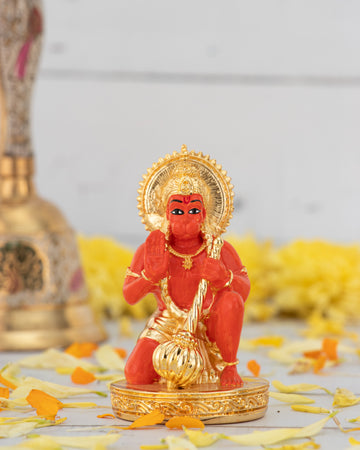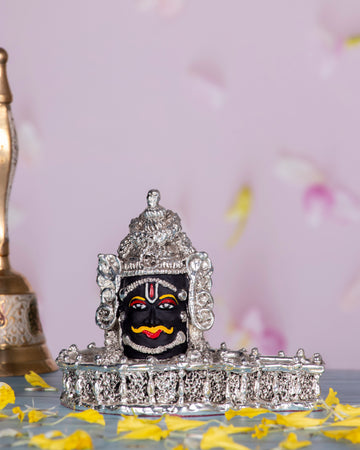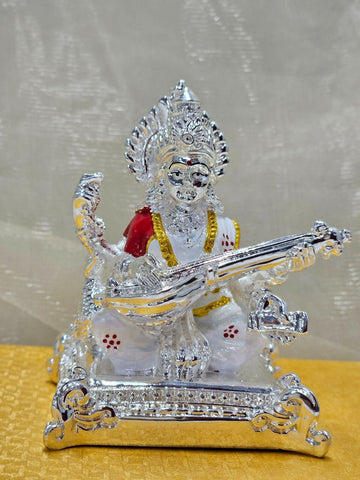For centuries, idols of deities have been used in spiritual practices as symbols of divine energy, each representing different aspects of life and the cosmos. These sacred images are not merely decorative pieces; they serve as powerful conduits for connecting with higher realms, invoking blessings, and bringing peace and prosperity into our lives. In this blog, we explore the spiritual significance of some of the most revered God idols, and how they impact the lives of worshippers and devotees.
1. Lord Ganesha: The Remover of Obstacles
Symbolism:
Lord Ganesha, with his elephant head, is one of the most widely worshipped deities across the world. As the son of Lord Shiva and Goddess Parvati, Ganesha is revered as the remover of obstacles and the god of wisdom, intellect, and new beginnings.
Spiritual Significance:
Placing a Ganesha idol in your home or workplace is believed to bring prosperity, remove mental and physical hurdles, and usher in success. Whether it’s a new venture, a journey, or overcoming personal challenges, Lord Ganesha is seen as the divine guide for smooth transitions and favorable outcomes. His presence is said to encourage positive energy and clear the path for growth and learning.
2. Goddess Lakshmi: The Goddess of Wealth and Prosperity
Symbolism:
Goddess Lakshmi, often depicted sitting on a lotus and holding lotus flowers and coins, is the goddess of wealth, fortune, and prosperity. Her idols are commonly placed in homes, especially during festivals like Diwali.
Spiritual Significance:
Having a Lakshmi idol in the home is believed to attract financial abundance, happiness, and overall prosperity. Worshippers often seek her blessings not just for material wealth, but for emotional and spiritual well-being. Goddess Lakshmi's presence is a reminder to lead a life of virtue, honesty, and generosity while she bestows material blessings on those who seek her favor.
3. Lord Shiva: The Destroyer and Transformer
Symbolism:
Lord Shiva, known as the destroyer and transformer in the Holy Trinity of Hinduism (Trimurti), is often depicted in various forms such as Nataraja (the cosmic dancer) or in meditation. His iconic trident and crescent moon symbolize balance, and his third eye represents wisdom beyond perception.
Spiritual Significance:
Shiva idols are revered as representations of purification, destruction of negative influences, and the ultimate consciousness. Shiva’s presence in the form of an idol in your home or sacred space is believed to promote inner peace, mental clarity, and spiritual growth. Worshiping Lord Shiva helps devotees transcend their ego, focus on self-improvement, and embrace change as a necessary part of life.
4. Lord Vishnu: The Preserver of the Universe
Symbolism:
Lord Vishnu is often depicted as a serene, peaceful figure with four hands, each holding symbolic items like the conch, discus, mace, and lotus. These items represent his power, and his form is seen as a protector who sustains and maintains the universe.
Spiritual Significance:
Vishnu is worshipped as the preserver of life, offering protection from evil forces. Idols of Lord Vishnu are believed to bring harmony and order into the lives of devotees, shielding them from negativity and encouraging righteousness. Worshipping Vishnu fosters a sense of balance and devotion to dharma (righteous living), making him a central figure for those seeking protection, justice, and tranquility.
5. Goddess Saraswati: The Goddess of Knowledge and Arts
Symbolism:
Goddess Saraswati is often depicted sitting on a swan, with a veena in her hands and a book by her side. She represents wisdom, creativity, and learning, and is revered by students, teachers, and artists alike.
Spiritual Significance:
A Saraswati idol is a symbol of divine knowledge, artistic expression, and intellectual growth. Her worship is believed to enhance creativity, improve learning capabilities, and encourage wisdom in all forms of art and science. Devotees often seek her blessings before starting academic pursuits or creative endeavors, trusting that her presence will guide them to success through learning and mastery.
6. Lord Krishna: The Divine Lover and Teacher
Symbolism:
Lord Krishna, often shown playing the flute or guiding Arjuna in the Bhagavad Gita, symbolizes divine love, wisdom, and guidance. His playful, charming demeanor also represents the joy of life and spiritual freedom.
Spiritual Significance:
Krishna idols are deeply revered for their embodiment of love, compassion, and devotion. Worshiping Lord Krishna is believed to help devotees cultivate love for the divine, enrich relationships, and understand the deeper meaning of life. Krishna's teachings, which promote selfless action and devotion, guide followers toward spiritual liberation and inner peace.
The spiritual significance of each God idol extends beyond aesthetics. They serve as anchors for spiritual practices, offering comfort, guidance, and protection. By placing these idols in our homes or spaces, we invite the divine into our lives, fostering a deeper connection with the universal energies that govern the world.
Each idol represents not just a deity, but also a guiding principle for how we live, grow, and evolve. Whether it is wisdom from Saraswati, prosperity from Lakshmi, or protection from Ganesha, these idols serve as a reminder of the divine presence that is always with us, guiding us on our spiritual journeys.
If you are looking to invite divine energy into your home through God idols, explore Zaariya's wide selection of beautiful and authentic idols that can help you find the perfect symbol that resonates with your spiritual path.














